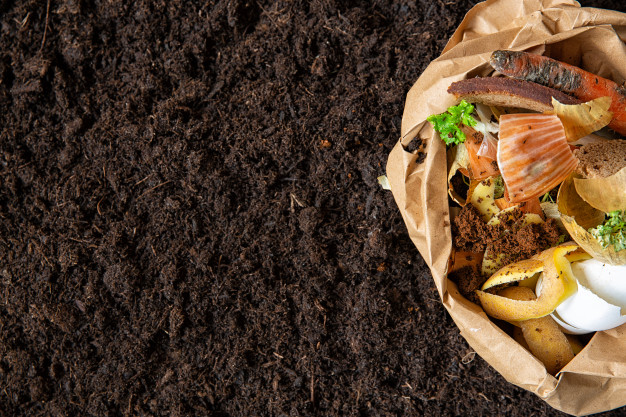Each person generates almost 0.74 kg of waste each day, worldwide. World Bank published a report stating global waste generation would increase by 70% if the current condition persists. Let us discuss Composting at Home: Your Guide to Better Fertilizer
Imagine if there was no waste in this world; no plastic, no food or candy wrappers, no food waste, dumped in the ocean or on the roadside. But how does the waste end up there? It’s not like the earth dug itself and dumped the waste. It is us, humans who create these wastes. 40% of the waste generated is not even managed properly, they are either burned or dumped in the open.
The statistics not only look depressing but it’s horrifying to think that our next generation would inhabit such a world. Luckily, many people have put on their thinking cap and became conscious of waste management. These people are adopting a zero-waste lifestyle.
How to manage waste at home?
If you’re just a little conscious about the waste you’re creating in your daily life, you will really do a lot. Waste management is not rocket science that you need to have a degree to learn it.
- Firstly, replace the plastic in your life with something more sustainable. Start carrying a jute or cloth bag when you go out for grocery shopping.
- Secondly, start waste management. Composting is a sustainable waste management practice that you can easily follow. You can compost all your kitchen waste to create fertilizer for your plants.
What is composting?
Compost is organic matter that can be added to your soil to make it rich in nutrients. It fuels plant growth and improves the quality of the soil. When you compost waste, bacteria in the soil break down the kitchen waste, and garden waste resulting in nutrient-rich compost.
Many people think composting at home is a nasty idea. It would be a messy process, smell gross, and attract insects. Well, if you do it the right way it is the most simple and the best thing you can do for the planet.
How to compost the right way?
We have explained the process in a very uncomplicated way. It’s important that you follow each of these steps carefully before you start composting.
- Choose a site for compost- You can either buy a compost bin or choose a corner of your backyard. Choose a place with a good supply of air, water, and sunlight. If you don’t have a backyard space, you can buy a compost bin. There are different plastic, terracotta compost bins available.
- Add materials – Shred any large items before adding them to the bin. Start with piling the fruit, vegetable peels, eggshells, bits of paper. Then add the layer of dry grass or leaves you have collected. Layer the dry and wet items separately. Cover the materials with a top layer of soil. You can also add vermicompost to the mix.
Moisten the compost – Your compost should be moist, not wet. Keep the top layer moisten always. If you are using your backyard, stir the pile frequently.
Your compost should be ready in about 4-5 weeks. Once finished, the compost will look like dark soil. You won’t find any of the materials that you had put in there in the first place. Add this compost to your garden soil. You can prepare another batch of compost while the first one is cooking.
What can you compost?
You cannot compost all the waste that you generate. Following are the items you can compost-
- Fruit and vegetable peels
- Leftover food
- Eggshells
- Dry leaves, grass, and twigs
- Tea leaves
- Coffee grounds
- Paper
- Small pieces of wood
What not to compost?
Some products are not biodegradable and cannot be composted. Here are a few items that you should never add to your compost bin-
- Plastic
- Meat, Fish, or anything with grease
- Dairy products like cheese, yoghurt
- Diseased plant
- Dog or cat faeces
Composting at home should be adopted by everyone despite where you are living. For the people dwelling in apartments, you can always buy a compost bin and keep it in the corner of your balcony. It is a practice that is the first step towards waste management. It reduces your kitchen waste
drastically.
This article will help not just gardeners, but anyone looking to start composting, but are too confused about the process. A properly managed compost pile doesn’t give off any unpleasant odour.
If you’re not getting good compost the first time you try your hand,
tweak things a bit. Try keeping the bin in a shady area or a partially sunny area. If you follow the tips mentioned here carefully, you will get a fertilizer that is pure and good for your plants. You should always give your plants organic materials.
Nivshakti Bioenergy Pvt Ltd is one of the largest Biotech Companies in North-East India. We provide organic and environment friendly solutions to agriculture. We are a recognised name across the globe. We are the prime input manufactures of Bio-Insecticides, Bio-Fungicides, Bio-Fertilizers, and Bio-Pesticides. Reach out to us if you are looking for an organic solution for your farm or garden. Visit our website
shaktibiotech.in to know more about our products.
